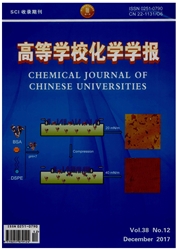

 中文摘要:
中文摘要:
目的:探讨早期强化阿托伐他汀治疗对急性冠脉综合征(acute coronary syndrome,ACS)患者高敏C-反应蛋白(hypersensitive C reaction protein,hs-CRP)、脂联素(adiponectin,APN)的影响。方法:121例ACS患者随机分为普通治疗组(阿托伐他汀20 mg/d,59例)、强化治疗组(阿托伐他汀80 mg/d,62例),比较两组治疗前、治疗后24 h、72 h、1周的hs-CRP、APN水平;比较两组1周内的心血管事件发生率。结果:普通治疗组1周内心脏事件发生率明显高于强化治疗组(P〈0.01)。与治疗前相比,治疗后24 h两组血清hs-CRP水平明显升高(P〈0.01),且普通组明显高于强化组(P〈0.05);治疗72 h、1周,两组的血清hs-CRP均显著下降(P〈0.01),强化组下降幅度大于普通组(P〈0.05)。与治疗前相比,治疗后24 h两组血清ANP水平明显降低(P〈0.01),且普通组明显低于强化组(P〈0.05);治疗72 h、1周两组的血清APN与治疗前相比均显著升高(P〈0.01),强化组升高幅度大于普通组(P〈0.05)。hs-CRP水平与APN水平呈负相关(r=-0.52,P〈0.01)。结论:早期强化他汀治疗能够有效减少ACS患者近期心血管事件的发生,这一作用可能与降低hs-CRP水平,升高APN水平,抑制炎症反应有关。
 英文摘要:
英文摘要:
Objective: This study aimed to investigate the effects of early intensive atorvastatin therapy on the levels of hypersensitive C reaction protein(hs-CRP) and adiponectin(APN) in hospitalized patients with acute coronary syndrome(ACS).Methods: 121 hospitalized patients with ACS were randomly divided into the conventional therapy group(atorvastatin 20 mg/d,n=59) and the intensive treatment group(atorvastatin 80 mg/d,n=62).We choosed 1 week for the period of observation in this study.All patients were administrated with standard medicine therapy and fed with salt-poor,low-fat diet.The serum concentrations of hs-CRP and APN were determined at four timepoints(baseline,at 24 hours,72 hours and after one week);Cardiovascular events were monitored within a week.Results: Serum concentrations of hs-CRP were markedly lower than pre-treatment in both groups of patients at 72 hours and one week(P0.01).Compared with conventional therapy,intensive atorvastatin therapy furtherly reduced serum hs-CRP concentrations(P0.05).Concentrations of APN increased significantly at 72 hours and at one week,intensive atorvastatin therapy furtherly increased serum APN concentrations in comparision with conventional therapy(P0.05).The levels of hs-CRP were negatively related to the expression of APN(r=-0.52,P0.01).The occurrence of cardiovascular events observed during hospitalization in intensive therapy group is significantly lower than that of conventional treatment group(P0.01).Conclusion: Early intensive atorvastatin treatment in patients with ACS could reduce cardiovascular events compared with the conventional treatment via its anti-inflammation.
 同期刊论文项目
同期刊论文项目
 同项目期刊论文
同项目期刊论文
 期刊信息
期刊信息
